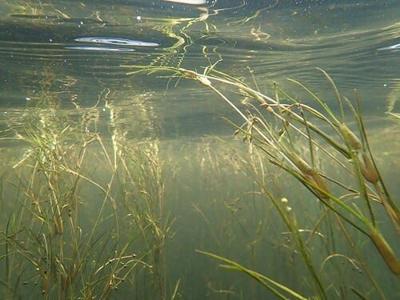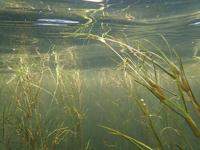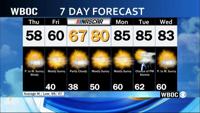EASTON, Md. - A new report from scientists at the University of Maryland of Environmental Science and University of Michigan predicts dead zone will likely grow larger in size this year, making it a possibly tough summer for the Chesapeake Bay.
Dead zones happen when algae blooms in an area, usually caused by nutrients in the water, and then dies and sucks up oxygen in the water. If there's no oxygen, marine life will suffer. Still, scientists are hopeful the problem won't last long.
The report says the amount of nutrients, mainly nitrogen, is "above average" in the Bay. Alan Girard of the Chesapeake Bay Foundation says wet and hot weather is to blame.
"With that we can have a larger dead zone than we've had in other years mostly because of rainfall," Girard said.
In May, sporadic and heavy rainfall dumped large amounts of nutrients into the Bay, according to scientists. Now with the heat, they say conditions are perfect for algae to continue to bloom, die, and possibly create larger dead zones.
But Girard says it's a short term concern while, long term, there are signs the Bay is improving.
"It's something certainly to be concerned about. It's also an indication that the work that we have been doing has been working so we need to continue to focus the effort," Girard says.
Matt Pluta, the ShoreRivers organization's Choptank riverkeeper, agrees with Girard: it's concerning but not alarming. From testing the water, Pluta says he's seen more dead fish popping up recently - an indication oxygen levels in the water are down.
"I haven't seen it this early in the Spring in the four years I've been monitoring the river," Pluta said. "The weather is very much out of our control but we can try and do as much as we can on the front end to prevent some of the impacts when it rains."
Pluta says agricultural runoff from homes and farms are things that can be prevented from nutrients running off into the Bay.
On the other hand, Girard stresses stormwater runoff is also a factor in causing runoff into the Bay.







